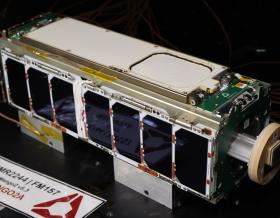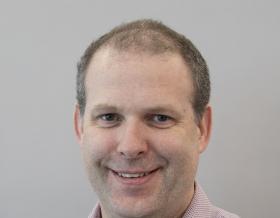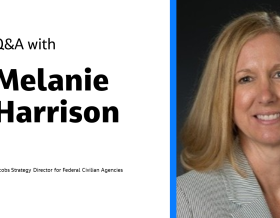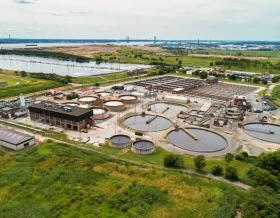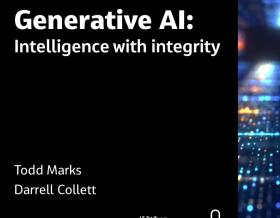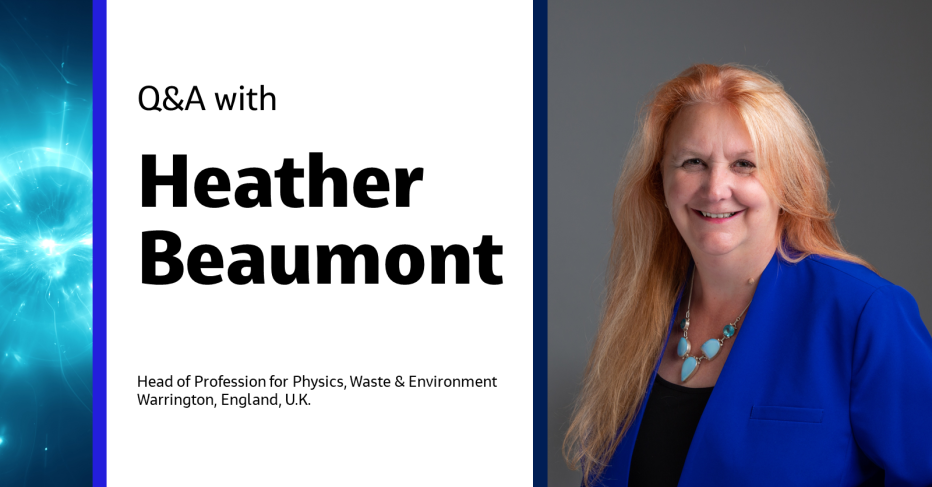
At Jacobs, we see climate change as perhaps the greatest challenge and opportunity of our generation. How we collectively respond to the global climate crisis will be foundational to building a healthier, safer, more equitable and sustainable future for all people and our planet. That’s why we’re contributing our civil engineering and advanced manufacturing skills and capabilities to develop new types of nuclear power stations – advanced modular reactors which have the potential to reduce dependence on fossil fuels and create a thriving new export industry.
For this Q&A, we connected with Heather Beaumont, who has 30 years’ experience working on nuclear power and decommissioning, including advanced reactor systems such as the U-Battery micro reactor, where she’s currently delivery lead for Jacobs, as well as other high temperature reactor designs and fast reactors.
Heather, head of profession for physics, waste and environment in Jacobs’ Energy, Security & Technology (ES&T) business unit, was recently chosen by the U.K.’s Institute of Physics (IOP) to receive the 2021 Phillips Award. The honor recognized her work as chair of the IOP Nuclear Industry Group, which has grown significantly under her leadership, shifting its events online to keep the audience connected and engaged during the COVID-19 pandemic.
Let's get to know Heather:
Tell us a bit about yourself and your career with Jacobs so far.
I graduated in physics at the University of Liverpool, where I was also awarded a master’s degree in surface and interface science, before beginning my career with a technical consultancy business. I joined National Nuclear Corporation’s (NNC) graduate scheme and was with the business through several changes in ownership, culminating in the acquisition by Jacobs.
Initially, I worked my way up to business and operations manager of a large multi-disciplinary team working on reactor physics, shielding, criticality safety, thermal hydraulics, hazards assessment and safety case, periodic safety assessments, radiological consequences assessment and licensing.
I was also Head of Profession (HOP) for physics, waste and environment for the nuclear sector, but six years ago I stepped away from line management when the HOP role became full time. As a HOP, my focus is on capability management, making sure we recruit the right people and have the right training and succession plans in place. I also support our business strategy in a range of areas and am the technical manager in our ES&T business unit for our Graduate Development Program, where I support the career development of our early careers staff.
What got you interested in a STEAM career?
At school, I was always good at and enjoyed mathematics and physics, so it seemed like a logical progression to study for a science degree. At that time very few women did physics degrees, but even then the university was keen to address the gender balance.
I heard about the NNC graduate scheme by word of mouth and I had no hesitation in applying. I was already familiar with the nuclear industry because I grew up in Barrow-in-Furness, where the U.K.’s nuclear submarines are built, and both my parents had jobs connected with the shipyard.
Tell us about your role on the U-Battery project.
It’s very exciting to be Jacobs’ delivery lead on the U-Battery, an advanced small modular reactor using proven high temperature gas technology. Each unit is designed to produce 10 megawatts (MW) of heat or 4MW of electricity and by adding more units, the output can be scaled up to meet demand. In the U.K., U-Battery could be deployed at potentially hundreds of industrial sites, which could make a major contribution to their decarbonization. Likewise, there’s a sizeable prospective market in Canada, with potential for as many as 200 units deployed across two key applications: remote communities and extractive industries.
We are currently in the concept design stage and Jacobs is leading on primary system structures and components, control instrumentation and automation, process heat take-off and despatch, safety and environmental analysis and human factors. We’re also supporting on fuel and reactor cavity safety, helium purification and civils for the reactor building.
Estimates show that there could be a $124 billion (£92 billion) global market for small modular reactors by 2040. We now see real progress and a great opportunity in front of us.
“I think it’s important that physicists make their voices heard in wider society. Some of the first people to ring the warning bell about climate change were those in the geosciences branch of the physics profession.”
What has been the most challenging aspect of developing new reactors and how have you helped to overcome this?
The key innovation for U-Battery is its simplicity of design, enabled by TRISO fuel*, that allows short construction time, low construction risk and thus, early revenue generation compared to light water reactors. The U-Battery’s small size opens a number of applications and markets and could therefore help provide a sustainable solution to decarbonize high-heat demand industrial processes. To be viable for off-grid operation in potentially remote locations, it needs to be designed in a modular way so that it can be factory-manufactured, transported to site and constructed in the most economical and fastest way possible, all against the backdrop of meeting nuclear safety requirements and justifying this to the relevant regulators. Modular construction in this way presents a number of engineering challenges where innovative solutions are needed. This is what makes the U-Battery so novel and such a potential game changer for the nuclear industry. A lot of the Jacobs input that I’m managing is aimed at addressing these challenges.
Jacobs believes in challenging today and reinventing tomorrow. What does this mean for you in a practical sense?
I think it’s important that physicists make their voices heard in wider society. Some of the first people to ring the warning bell about climate change were those in the geosciences branch of the physics profession.
I’ve led the IOP’s Nuclear Industry Group for the past five years and had input into the IOP’s response to government on issues such as energy security and the impact of Brexit on the U.K.’s status in the European Atomic Energy Community (Euratom), ensuring that lawmakers are aware of the views of the physics community.
Despite the COVID-19 pandemic, the group has significantly increased its engaged audience and raised its profile by supporting several public consultations and hosting a successful international topical research meeting in collaboration with the International Atomic Energy Agency, which celebrated the success of physics-based research in driving innovation and value across the nuclear industry.
During lockdowns, we kept the community connected and engaged with a series of online webinars on topics such as women physicists in the nuclear industry and advanced modular reactors.
When you’re not working, what would we most likely find you doing?
I’ve always been an avid reader of a range of fiction genres, even more so during the lockdowns when I couldn’t follow my other main interests, which are international travel and photography. Looking on the bright side though, not being able to go abroad has given me a chance to discover or revisit many places in the U.K. and explore the local area.
*TRi-structural ISOtropic particle fuel is made up of a uranium, carbon and oxygen fuel kernel encapsulated by three layers of carbon and ceramic-based materials that prevent the release of radioactive fission products.
About the interviewee

Heather Beaumont has over 30 years of experience working on wide range of topics and different reactor types and advanced reactor systems including fast reactors and high temperature reactors. She's been involved in a number of large studies in support of the safety cases for the AGR stations and has been extensively involved in numerous fast reactor design studies. Her experience includes project and technical management of numerous tasks of various sizes for a range of U.K. and international client; and managing a large multi-disciplinary team working on reactor physics, shielding, criticality safety, thermal hydraulics, hazards assessment and safety case, PSA, radiological consequences assessment and licensing for Jacobs' portfolio of nuclear projects. Currently the Head of Profession for the Physics, Waste and Environment disciplines, Heather provides functional leadership across the whole of the Physics discipline. She is an active Chartered Member and Fellow of the Institute of Physics (IOP), sits on the IOP Chartership panel and is chair of the Nuclear Industry Group.
You might be interested in...
-
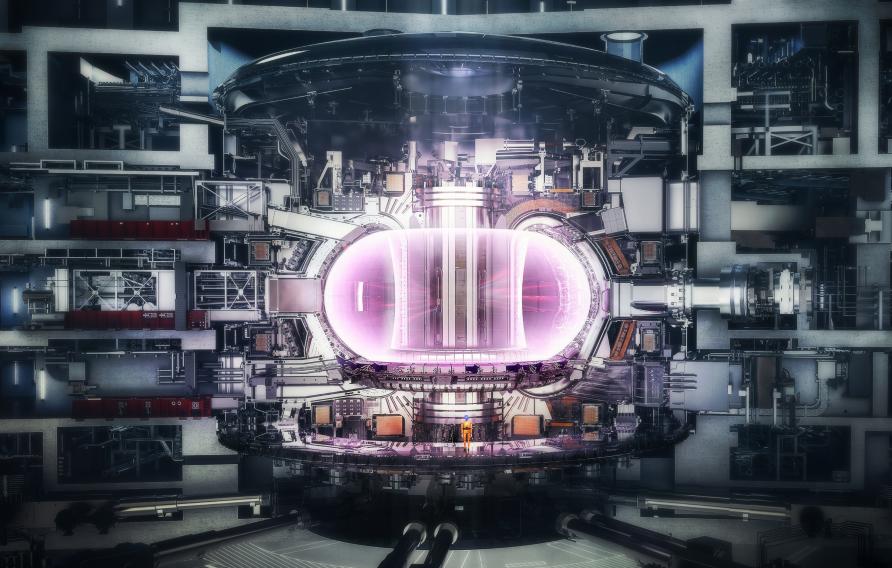 Page
PageNuclear Lifecycle
From next generation systems for a climate-resilient future to managing complex decommissioning, site closure, radioactive waste and remediation efforts, we're helping solve the world’s most complex nuclear challenges safely and effectively.
-
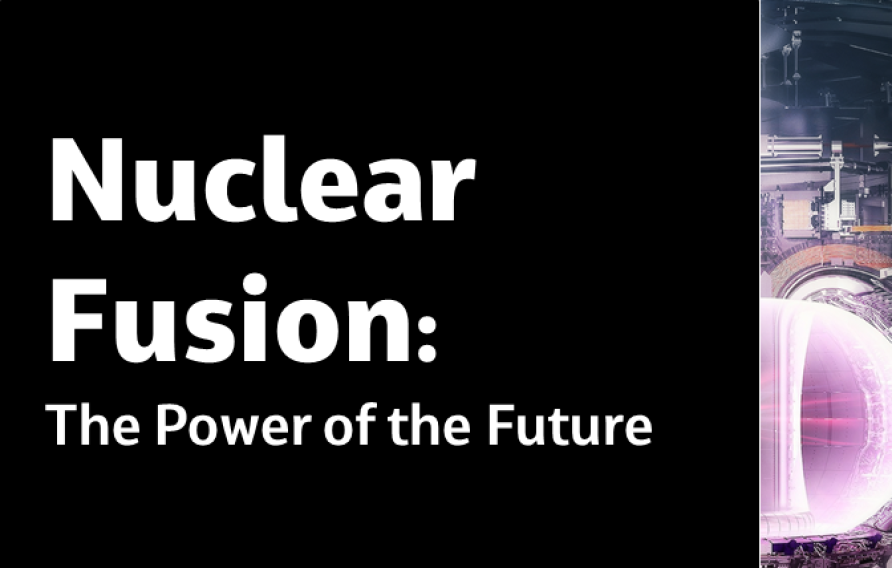
 Podcasts
PodcastsNuclear Fusion: The Power of the Future
In this episode of If/When, we’re talking about nuclear fusion with CEO of UK Atomic Energy Authority Ian Chapman and Jacobs Critical Mission Solutions International Senior Vice President Clive White.
-
 Page
PageEnergy
From aging and retiring asset bases in traditional base load power systems, to the increasing penetration of intermittent renewable generation, Jacobs is supporting power utilities and private companies all around the world to find the best solutions to their energy and power challenges.
Join #OurJacobs team
What drives you drives us as we work to build a better world – together. At Jacobs, every day is an opportunity to make the world better, more connected, more sustainable.
We’re always looking for dynamic and engaged people to join our team. Bring your passion, your ingenuity and your vision.







